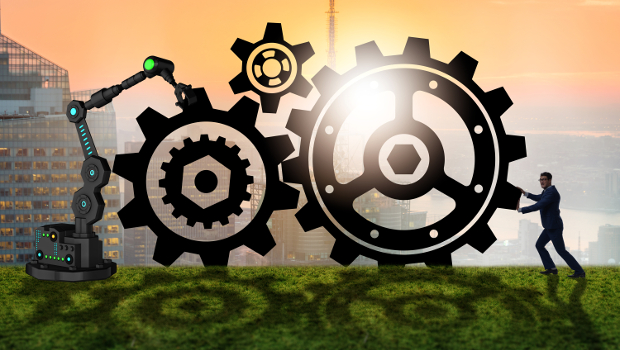Research carried out by Vanson Bourne for Dell Technologies reveals a divided vision of the future, where automation is regarded as inevitable in business, but few seem to agree on whether it will have an overall positive or negative effect.
Half of the 3,800 global business leaders surveyed were of the view that automated systems will free up their time, while the other half believe otherwise. Similarly, 42% believe they will achieve more job satisfaction through offloading tasks to machines, while 58% disagree.
“There tends to be two extreme perspectives about the future: the anxiety-driven issue of human obsolescence or the optimistic view that technology will solve our greatest social problems”
The research behind the “Realising 2030: The Next Era of Human-Machine Partnerships” study suggests that by 2030, emerging technologies will allow the forging of human machine partnerships that are “richer and more immersive than ever before,” with the potential to help us “surpass our limitations”. Business leaders agree, according to the research, with the vast majority (82%) expecting humans and machines to work as integrated teams within their organisation inside of five years.
According to the study, business leaders are divided on whether this future represents an opportunity or a threat and are consequently torn by the need to mitigate risks. Almost half (48%) say the greater the dependence on technology, the greater the risk and exposure in the case of a cyberattack, while just over half (52%) were unconcerned. Half of business leaders are calling for clear protocols in the event that autonomous machines fail, while the other half abstained. Almost half (45%) say computers will need to be able to decipher between good and bad commands, while the balance (55%) do not see the need.
“You can understand why the business community is so polarised,” said Jeremy Burton, chief marketing officer, Dell Technologies. “There tends to be two extreme perspectives about the future: the anxiety-driven issue of human obsolescence or the optimistic view that technology will solve our greatest social problems. These differing viewpoints could make it difficult for organisations to prepare for a future that’s in flux and would certainly hamper leaders’ efforts to push through necessary change.”
Business leaders reported a lack of vision and strategy as the main barrier to success in digital business, though tied with a lack of workforce readiness. This was followed by technology constraints, which was trailed by time and money constraints.
Understanding the need to transform, business leaders in the study said they fully expect, within the next five years, to have effective cybersecurity defences in place, as well as being able to deliver their product as a service and complete a transition to being a software-defined business. Though these were the leading three forecasted achievements in the five year time frame, delivering hyper-connected customer experiences through virtual reality (VR) was running close, followed by using artificial intelligence (AI) to pre-empt customer demands.
“We’re entering an era of monumental change,” said Burton. “Although business leaders harbour contrasting views of the future, they share common ground on the need to transform. Based on the many conversations I have with customers, I believe we’re reaching a pivotal moment in time. Businesses can either grasp the mantle, transform their IT, workforce and security and play a defining role in the future or be left behind.”
TechCentral Reporters







Subscribers 0
Fans 0
Followers 0
Followers